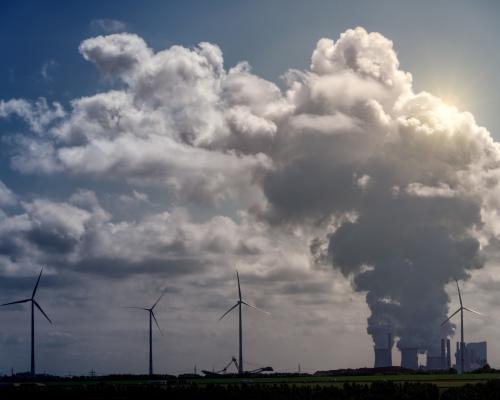
McKinsey: Voluntary Carbon Markets are Crucial in the Fight Against Climate Change

In a world where climate change poses an imminent challenge, innovative solutions are crucial.
The study “A blueprint for scaling voluntary carbon markets to meet the climate challenge,” published by the prestigious consultancy McKinsey, provides an in-depth analysis and a strategic roadmap to amplify the impact of voluntary carbon markets.
This approach not only addresses the direct reduction of greenhouse gas (GHG) emissions but also highlights the importance of carbon offsets as an essential tool in the fight against climate change.
Here we explore the key points of the study, the challenges identified, and the proposed solutions to transform these markets into a fundamental pillar for climate action.
The Climate Challenge and the Need for Action
The report begins by highlighting the urgency of reducing GHG emissions and how, for many companies, eliminating their emissions is a formidable challenge.
The purchase of carbon credits emerges as a viable solution, allowing companies to offset emissions they cannot directly reduce. The prediction is bold: the demand for carbon credits could increase dramatically, suggesting a potentially $50 billion market by 2030.
Challenges to Scaling Voluntary Carbon Markets
However, the path to scaling these markets is fraught with obstacles.
Market fragmentation, lack of price transparency, and complexity in credit verification complicate effective implementation.
These challenges not only undermine confidence in carbon credits as a mitigation tool but also create uncertainty about their real environmental impact.
A Comprehensive Plan for Transformation
To overcome these obstacles and enhance the market, the study proposes a multifaceted approach:
Shared Principles for Carbon Credits
Establishing common standards for defining and verifying credits is crucial. This would ensure the authenticity of emission reductions represented by credits and facilitate transactions.
Standardized Contracts
Creating contracts with standardized terms would consolidate trading activity and increase liquidity, thus facilitating more efficient trading.
Robust Trading Infrastructure
A flexible and resilient trading and post-trading infrastructure is vital to handle high transaction volumes and develop structured financial products that benefit project developers.
Proper Use of Carbon Credits
Clear guidance on how to properly integrate carbon credits into emission reduction strategies is essential to ensure they complement and do not replace direct emission reductions.
Ensuring Market Integrity
Implementing digital processes for the registration, verification, and issuance of credits can enhance market credibility and trust in offset projects.
Clear Demand Signals
Developing mechanisms for buyers to indicate their future demand for carbon credits is crucial to incentivize supply growth.
Impact and Potential Benefits
Successful implementation of these strategies could radically transform voluntary carbon markets, making them a crucial tool for achieving global climate goals.
Additionally, it would promote investment in climate action projects, generating additional benefits such as biodiversity protection and job creation, thus contributing to a just transition to a low-carbon economy.
Conclusion: A Call for Collective Action
The McKinsey report is a call to action for companies, financial institutions, project developers, and regulators to collaborate in overcoming current challenges and unlocking the potential of voluntary carbon markets.
This collaboration is essential to build a sustainable and resilient future, where carbon offsets effectively complement direct emission reductions on the path to net-zero emissions.
By addressing the identified challenges and following the proposed strategies, we can collectively move towards realizing this future, demonstrating a firm commitment to climate action and global sustainability.
References
Christopher Blaufelder, Cindy Levy, Peter Mannion, and Dickon Pinner. “A blueprint for scaling voluntary carbon markets to meet the climate challenge”. 2021 McKinsey & Company
Download the McKinsey report here



